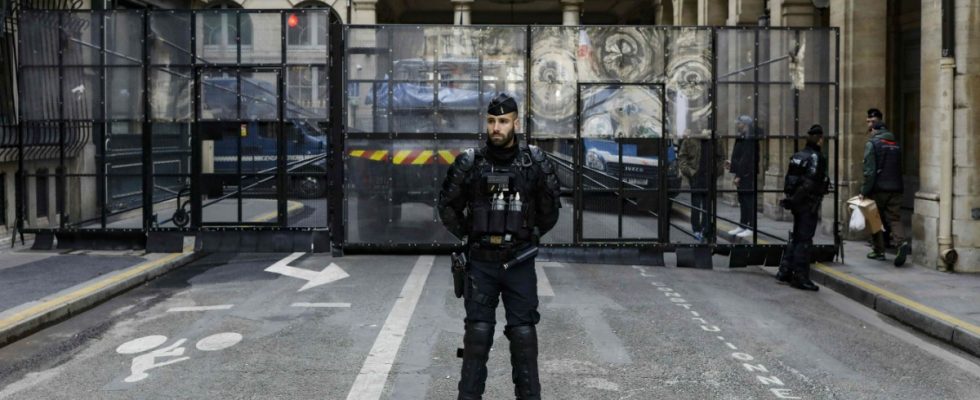The French Constitutional Council has approved the core of President Emmanuel Macron’s controversial pension reform. This means that the law can come into force before the end of this year, as planned by the government. According to the ruling, raising the statutory retirement age from 62 to 64 in the future is constitutional. However, the judges also overturned six articles that they say are incompatible with the budget law in which the government wrapped the reform. For example, a “senior citizens’ index” that should oblige companies to disclose the proportion of older employees.
It has been a long time since so much attention has been focused on the French Constitutional Council. As early as Thursday, garbage cans were piling up in front of the Paris courthouse near the Louvre – opponents of the pension reform had blocked the entrance with them. A few hours later, the interior minister issued a ban on gatherings in the vicinity of the building. Meter-high security fences protected the court on Friday. Is the decision of the Constitutional Council now the beginning of the end of the debate that has occupied the country for three months?
Since January, France has been arguing about the reform that President Emmanuel Macron and his government are planning. In mid-March, the government pushed the reform through a constitutional clause without a vote in parliament, so it was considered passed.
Macron now wants to talk to the unions. A bad joke, they think
“The text is reaching the end of its democratic process”, Prime Minister Elisabeth Borne tweeted after the verdict. “Tonight there are no winners and no vanquished.” In recent weeks, President Macron and his Prime Minister have repeatedly rejected criticism of their decision to implement the law without a vote in Parliament, saying the procedure corresponds to the French constitution and is therefore legitimate.
In recent protests across the country, fewer and fewer people have taken to the streets. At the beginning of March there were still more than a million, and on the twelfth day of the strike this week there were still almost 400,000. However, it is unlikely that the mood will calm down immediately after the ruling by the Constitutional Council. “We will continue to support the protests and strikes,” said the parliamentary group leader of the left-wing La France Insoumise, Mathilde Panot, on Friday evening. “We call on the government not to enact this law,” said the new CGT union leader Sophie Binet.
Before the verdict, President Emmanuel Macron had suggested that the unions exchange ideas in the coming week. The offer was not well received by everyone. “Lol,” scoffed CGT chairwoman Sophie Binet, that is: laughable. Your union will only attend a meeting when it comes to the end of the reform.
So far, the many different French trade unions have appeared surprisingly united. The question now is whether the unit will remain in place after the decision of the Constitutional Council. In the government camp, there is hope that Laurent Berger, head of the largest and most moderate trade union, CFDT, will give in. He had already announced in advance that the court’s decision had to be respected. On the sidelines of this week’s protest march, he also said: “We’re not just going to do something else.”
On Friday, the Constitutional Council also overturned the motion for a referendum on pension reform that the opposition had tabled. The decision on a further application should be made in early May. However, even if the court should approve this request, it is unlikely that a referendum will actually take place. This would require the support of almost five million French people. In addition, the government could prevent a referendum by having the proposal discussed in parliament.
For Labor Day on May 1st, the unions are again calling for a nationwide strike. And less than an hour and a half after the decision of the Constitutional Council, a stand with rental bikes was already burning in Paris.

